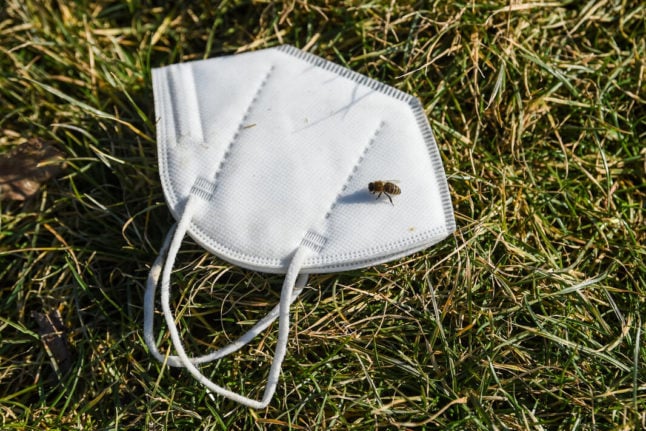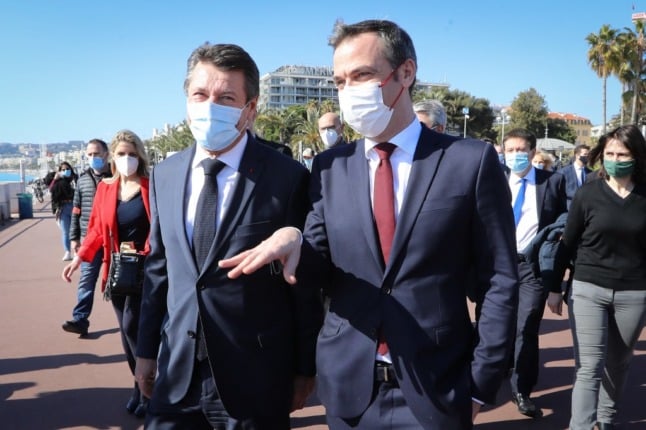As of December, everyone in Germany over the age of 60 or with certain pre-existing conditions is entitled to 15 free FFP2 face masks which they can pick up from their local pharmacy by handing in a coupon.
READ ALSO: Where and how these risk groups in Germany can get free FFP2 masks
But details of the compensation agreement between the health ministry and the German Pharmacy Association show that the state compensated pharmacists with about ten times the amount they actually spent on buying the masks, the Süddeutsche Zeitung (SZ) reported on Thursday.
Pharmacists the SZ spoke to said that an FFP2 mask cost between €0.60 and €0.70 at wholesale price. But the Health Ministry compensated them €6 per mask.
One pharmacist said that “we earned absolutely stupid money.”
The deal could turn into a political scandal for Health Minister Jens Spahn of Chancellor Angela Merkel’s centre-right Christian Democrats. Spahn is already under pressure over the slow rollout of the vaccine programme and the delayed implementation of antigen testing.
Bureaucrats in his ministry reportedly did not want to offer the over 60s free masks as they believed that most were capable of buying them themselves. But Spahn insisted on the strategy, documents released via the freedom of information act show.
The price of €6 per mask also appears to have been set based on the advice of external consultants EY, who made their evaluation based on research on price comparison websites.
At a meeting with pharmacists and drug stores in October, the Health Ministry was told by participants that the wholesale price of a mask was considerably lower than the €6. One participant reportedly said he’d purchased five FFP2 masks that day in a drug store for a total of €9.99.
The Health Ministry has since lowered the compensation per masks to €3.90.
SEE ALSO: What you need to know about Germany’s mask rules for public transport and shops



 Please whitelist us to continue reading.
Please whitelist us to continue reading.
Member comments